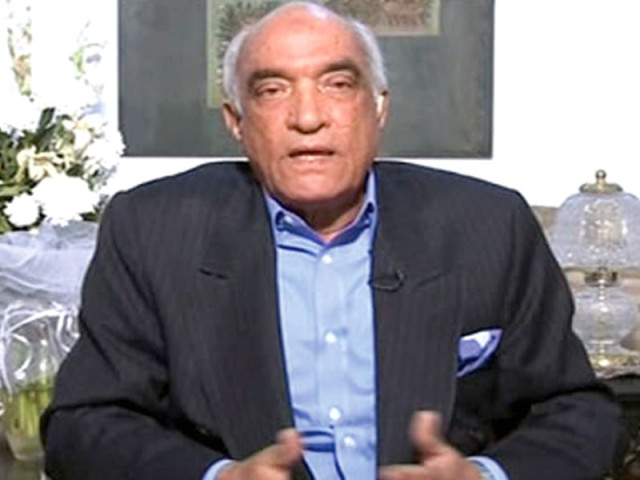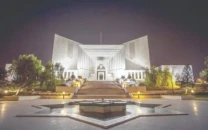Contentious legislation: Extent of parliament’s supremacy in the dock from Monday
Five-member SC bench to hear petitions challenging new contempt law.

Contentious legislation: Extent of parliament’s supremacy in the dock from Monday
A heated debate over the supremacy of parliament has done the rounds over the last month – and it will now make its way into courtroom number 1 from Monday.
The Supreme Court (SC) announced on Friday that it will take up multiple petitions next week challenging the legitimacy of the contempt of court law recently adopted by parliament.
The announcement comes a day after the president’s public statement that parliament had every right to make laws – referring to a contentious passing of a law that absolves all high office holders in the government, including the prime minister, from contempt of court proceedings for their actions.
Armed with the new law, the incumbent Pakistan Peoples Party (PPP) is believed to be aiming to restrain what it feels is an over assertive judiciary. The Supreme Court sent former prime minister Yousaf Raza Gilani packing last month on contempt charges, while the future of his successor is also up in the air after he, too, has dragged his feet on court pertaining to National Reconciliation Ordinance (NRO) case. The court had ordered that a letter be written to Swiss authorities seeking the reopening of graft cases against President Asif Ali Zardari and his late spouse, former prime minister Benazir Bhutto.
According to the case list for next week, a five-judge bench, headed by Chief Justice Iftikhar Muhammad Chaudhry himself, will hear the case on July 23. The bench will include Justices Shakirullah Jan, Tasadduq Jilani, Jawwad S Khawaja and Khilji Arif Hussain.
Since the contempt legislation was signed into law by President Zardari on July 13, over a dozen petitions have been filed in different registries of the apex court.
The matter will be taken up two days before the deadline set by the court for Prime Minister Raja Pervaiz Ashraf to comply with its orders. The court is scheduled to hear the NRO implementation case on July 25, where Prime Minister Ashraf is expected to update the court on whether or not he will comply with court orders.
The chief justice has already conducted a preliminary hearing of cases pertaining to the new contempt of court law at the Quetta Registry of the Supreme Court, after which notices were issued to the federation, Prime Minister Ashraf, chairman Senate, National Assembly Speaker Fehmida Mirza, Law Minister Farooq H Naek, Attorney General Irfan Qadir and the cabinet division.
Speaker of the National Assembly Dr Fehmida Mirza confirmed receiving the court notice and said that her secretariat would reply after consulting with legal experts.
Before the court initiated formal proceedings on the contempt of court law, veiled remarks were issued by both serving and retired judicial officers against it, while government functionaries at the highest level have alluded that they will be defending it with full force.
In an address to a lawyers’ assembly in Karachi, the chief justice remarked that the Constitution is supreme and the courts have the right to scrap any legislation which is against the basic sprit of the Constitution.
On Friday, former senior most SC judge, Justice (Retd) Khalil-ur-Rehman Ramday, while addressing Lahore High Court Bar Association, endorsed the statement of chief justice of Pakistan on the issue. He said that the apex court could strike down any law in conflict with the Constitution. “Parliament has no authority to cut the Supreme Court’s powers and it cannot make laws against basic human rights,” said Ramday.
When asked about the government’s defence strategy, Attorney General Irfan Qadir said, “Please wait for July 23rd. The court proceedings will be open and things will be clear to everyone.”
(Read: Courts and controversy)
Published in The Express Tribune, July 21st, 2012.



















COMMENTS
Comments are moderated and generally will be posted if they are on-topic and not abusive.
For more information, please see our Comments FAQ